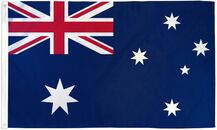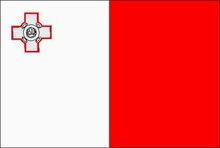|
On August 26, 2020, the Swiss Federal Council adopted the dispatches on a new tax treaty with Bahrain and on the protocol of amendment to the tax treaty with Kuwait.
The treaty with Bahrain contains an administrative assistance provision in accordance with the international standard concerning the exchange of information upon request and implements the minimum standards in accordance with the OECD’s base erosion and profit shifting project. The protocol of amendment to the tax treaty with Kuwait enhances the dispute resolution mechanism by means of an arbitration clause and contains substantial components of the minimum standards for double taxation agreements. See Announcement On August 26, 2020, South Africa’s Deputy Minister of Finance, David Masondo, participated at the 4th African Tax Administration Forum High-level Tax Policy Dialogue.
Masondo said that the National Treasury and SARS appeared in Parliament in June 2020 to discuss the issues within the digital economy and the implications for tax policy affecting the generation of new income tax revenue. During these discussions, National Treasury advised Parliament that South Africa has opted not to introduce any unilateral measures to deal with direct tax treatment of the challenges of the digital economy for now. South Africa has opted to wait for multilateral consensus or solutions to be published in the final report on tax challenges arising from digitalisation which is due in 2020, he said. See Release The Australian Taxation Office (ATO) will write next month to certain corporate tax entities informing them that the ATO’s 2018–19 Report of entity tax information is being prepared for publication.
According to the ATO’s release issued on August 18, 2020, the published report will include the company name, Australian business number, total income, taxable income, total tax payable (based on tax returns), and any PRRT amount payable for the 2018–19 income year. The report will also contain information on entities details for 2016–17 or 2017–18 tax returns if they were lodged or processed after September 1, 2019 and the information has not been published previously. The ATO said that it will let entities know the details being published and provide time to respond and advise if the information is incorrect. See Announcement The tax treaty between Japan and Jamaica will enter into force on September 16, 2020, Japan’s Finance Ministry announced on August 18.
The tax treaty will generally enter into effect from January 1, 2021. The provisions concerning exchange of information and assistance in the collection of taxes will have effect from September 16, 2020. Mutual notifications necessary for the entry into force of the tax treaty were completed on August 17. See Announcement On August 12, 2020, the US government published certain corrections to final regulations Treasury Decision 9896 that were published in the Federal Register on April 8, 2020.
The final regulations provide guidance regarding hybrid dividends and certain amounts paid or accrued pursuant to hybrid arrangements, which generally involve arrangements whereby US and foreign tax law classify a transaction or entity differently for tax purposes. The corrections are effective on August 12, 2020. See Correcting Amendment On August 13, 2020, the competent authorities of the Russian Federation and Malta agreed on a draft Protocol to amend the Russia-Malta tax treaty.
The protocol seeks to increase the rate of withholding tax on dividend income and interest income up to 15%, with exceptions for a limited list of institutional investments. The protocol will come into effect after both countries sign and ratify it. See Announcement The Maltese Government has published Regulations to extend deadlines for reporting of cross-border arrangements under the country’s DAC6 legislation.
Intermediaries and relevant taxpayers, as appropriate, shall file information on reportable cross-border arrangements by February 28, 2021 (previously August 31, 2020). The period of thirty days for filing information as required by the EU DAC6 Directive, shall begin by January 1, 2021, (previously July 1, 2020) where a reportable cross-border arrangement is made available for implementation, or is ready for implementation, or where the first step in its implementation has been made between July 1, 2020, and December 31, 2020. In the case of marketable arrangements, the first periodic report shall be made by the intermediary by April 30, 2021. See Regulations On August 7, 2020, India’s Central Board of Direct Taxes issued a detailed guidance on the mutual agreement procedure (MAP) framework set out in tax treaties.
The guidance has been published for the benefit of taxpayers, tax practitioners, tax authorities, and competent authorities of India and India’s treaty partners. The guidance is presented in four parts. It includes an introduction and basic information relating to MAP, information on access and denial of access to MAP, technical issues around MAP, and information on the implementation of MAP outcomes. See Guidance On August 6, 2020, the UN Committee of Experts on International Cooperation in Tax Matters released a proposed, optional tax treaty article on digital service payments.
The new Article 12B is entitled “Income from Automated Digital Services” and is followed by a detailed commentary. The draft provision and its Commentary have been prepared in accordance with the outcomes of the 20th session of the Committee, concerning the drafting of a provision that would allow the source taxation of income from the rendering of automated digital services. See Draft Article On July 29, 2020, the Netherlands signed a tax treaty with Kosovo. The treaty is broadly in line with the OECD Model Tax Convention.
The tax treaty meets the minimum standards agreed under the OECD’s base erosion and profit shifting project and contains an anti-abuse provision. The treaty also provides for binding arbitration in the event that the two countries are unable to mutually settle a given tax dispute. See Announcement On July 20, 2020, Hungary’s tax authority issued guidance on the country’s law requiring intermediaries and taxpayers to report cross-border arrangements.
The requirement was introduced in July last year to implement the EU Directive on reporting of cross-border tax arrangements (DAC6 Directive). The guidance provides an overview of the reporting legislation, entities required to report the arrangements, the reporting timelines, and penalties for non-reporting. Information on how arrangements need to be reported is also provided. See Guidance |
Archives
March 2024
|
COMTAX ABC/o Ekonomiforetaget Baehring Dahl AB
Berga Alle 3 25452 Helsingborg Sweden |
CONTACTTel.: +46 46 590 07 70
E-mail: support(@)comtaxit.com |
INFORMATION |
© COPYRIGHT 1985 - 2024 COMTAX AB. ALL RIGHTS RESERVED.











